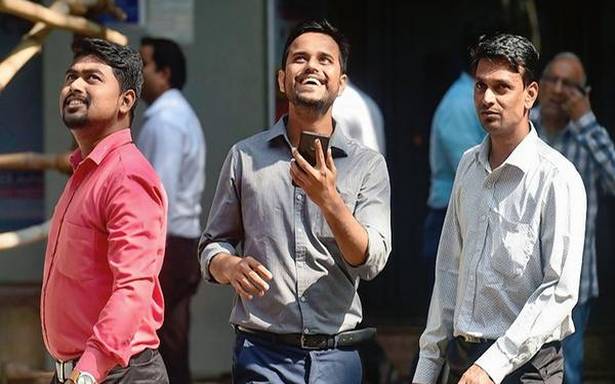In FY21. more than 14 million new demat accounts were opened, almost thrice the previous year’s 4.9 million accounts
A good part of the Indian stock market’s rally over the past 14 months, even as the COVID-19 pandemic has shrunk economic activity and left millions without jobs, has been fuelled by a jump in first-time investors, according to equity analysts.
The widening disconnect between the equity market and the ground reality of strict lockdowns across most of the States and tens of thousands of deaths has done little to deter these investors who appear to have been drawn by the lure of quick returns.
The S&P BSE Sensex, which gained almost 2% to close at 50,540.48 points on Friday, has almost doubled since its pre-national lockdown low of 25,981.24 points on March 23,2020, having surged 94.5%.
In FY21, more than 14 million new demat accounts were opened, an almost threefold jump from the 4.9 million that were started in the previous year, a trend that has continued this fiscal. While ease of trading on new technology platforms, including mobile phone applications, has been a trigger, the lack of commensurate returns from real estate and debt instruments have also driven investors to the stock market, said the analysts.
‘Easy, lucrative’
“People are now idle and sitting with cash,” said Ambareesh Baliga, an independent stock analyst. “Making money in the stock market has become easy and lucrative. Most of the new investors are youngsters in the age group of 18 to 35. Students are borrowing money from parents and investing in a small way but quickly increasing their portfolio by making quick profits which they are reinvesting,” he added.
According to Tanushree Banerjee, co-head, research, Equitymaster, most of the new investors were those who had ventured into stock markets with the expectation of making quick returns.
“The sentiments in the stock markets are currently driven by two factors: rate of recovery in corporate earnings and flow of liquidity,” Ms. Banerjee said.
‘Could thwart recovery’
With the second wave having delivered in the RBI’s words a ‘demand shock’ to the economy, it is hard to envisage companies continuing to deliver robust results and this could lead to downgrades in expectations, warned the analysts.
“Investors need to be careful about a few sectors, like the financial sector, where the second wave of the pandemic could thwart earnings recovery in the coming quarters,” said Ms. Banerjee, observing that the average return on stocks, across market caps, in the past year, had been in the region of 40% to 50%.
‘Stock picking’
“Investors cannot afford to take such high returns for granted. They need to be very careful in their stock picking. Let’s see how this experience pans out. It’s not clear to me whether it will be good for all these new investors,” she added.
According to Mr. Baliga most new investors don’t do adequate research and just ‘pick up any stock based on recommendations easily available on social media’.
“They do not know when to take profit home,” he said. “Unfortunately, none of them has seen big losses, though they might have heard about it.
“So, when the bubble bursts, they will be looking at much bigger losses.”
Source: Read Full Article

